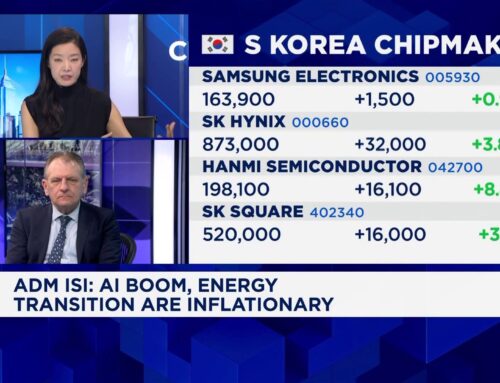Bitcoin, Crypto Prices Slide as Trade Tariffs and Inflation Risks Grow
March 31, 2025
Bitcoin has dropped to $82,100, Ethereum to $1,790, and XRP to $2.13, extending losses alongside U.S. stock futures as investors react to rising trade tensions and inflation concerns. S&P 500 and Nasdaq-100 futures declined by around 0.7% to 0.8%, while Dow futures fell 0.55%. Investor sentiment remains under pressure ahead of President Donald Trump’s April 2 tariff announcement, which is expected to impose reciprocal trade measures on at least 25 countries. Barclays estimates that auto-related tariffs alone could affect over $275 billion in annual imports. The broader tariff package, part of Trump’s proposed “External Revenue Service,” is projected to generate $600 billion in revenue.
The market downturn has led cryptocurrency investors to move capital into stablecoins and tokenized real-world assets (RWAs), which include tokenized real estate and fine art. IntoTheBlock reported that these assets are seeing steady inflows as safe-haven investments. However, it warned that because these assets exist on-chain, even minor shifts in sentiment can cause significant price swings due to their liquidity. RWAs hit an all-time high of over $17 billion in early February and are now nearing $20 billion, according to RWA.xyz. Some analysts believe that if Bitcoin struggles to regain momentum, RWAs could reach a $50 billion valuation by the end of 2025, capturing a larger share of the $450 trillion global asset market.
Since Trump announced tariffs on Chinese goods on Jan. 20, Bitcoin has dropped 19%, and the S&P 500 has fallen more than 7%. “Risk appetite remains muted amid tariff threats from President Trump and ongoing macro uncertainty,” said Iliya Kalchev, an analyst at Nexo. Meanwhile, inflation concerns continue to rise. The U.S. Commerce Department reported that the core Personal Consumption Expenditures (PCE) Price Index, the Federal Reserve’s preferred inflation measure, increased by 0.4% in February, the largest monthly rise in over a year. Economists had expected a 0.3% increase.
The Kobeissi Letter reported that U.S. consumer sentiment has dropped 20 points in the past month to a reading of 57, the lowest recorded outside of a formal recession. “An economic slowdown has clearly begun,” the publication stated. Investors are responding by rotating out of risk-heavy positions, contributing to the ongoing volatility in both traditional and digital markets. The so-called “Magnificent 7” tech stocks have lost more than $3 trillion in market capitalization in recent weeks.
Bitcoin mining remains a growing sector, but regulatory uncertainty and inflation pressures present challenges. At the Mining Disrupt conference in Fort Lauderdale, one miner emphasized Trump’s message: “Never sell your stash.” Industry participants remain optimistic, though analysts caution that economic and regulatory conditions will shape the sector’s future.
Juan Pellicer, senior research analyst at IntoTheBlock, said many investors had anticipated economic benefits under Trump but are now adjusting to rising geopolitical tensions and uncertainty. The upcoming tariff announcement is expected to bring more clarity to markets already experiencing significant volatility.
Terms and Privacy Policy
Search
RECENT PRESS RELEASES
Related Post



